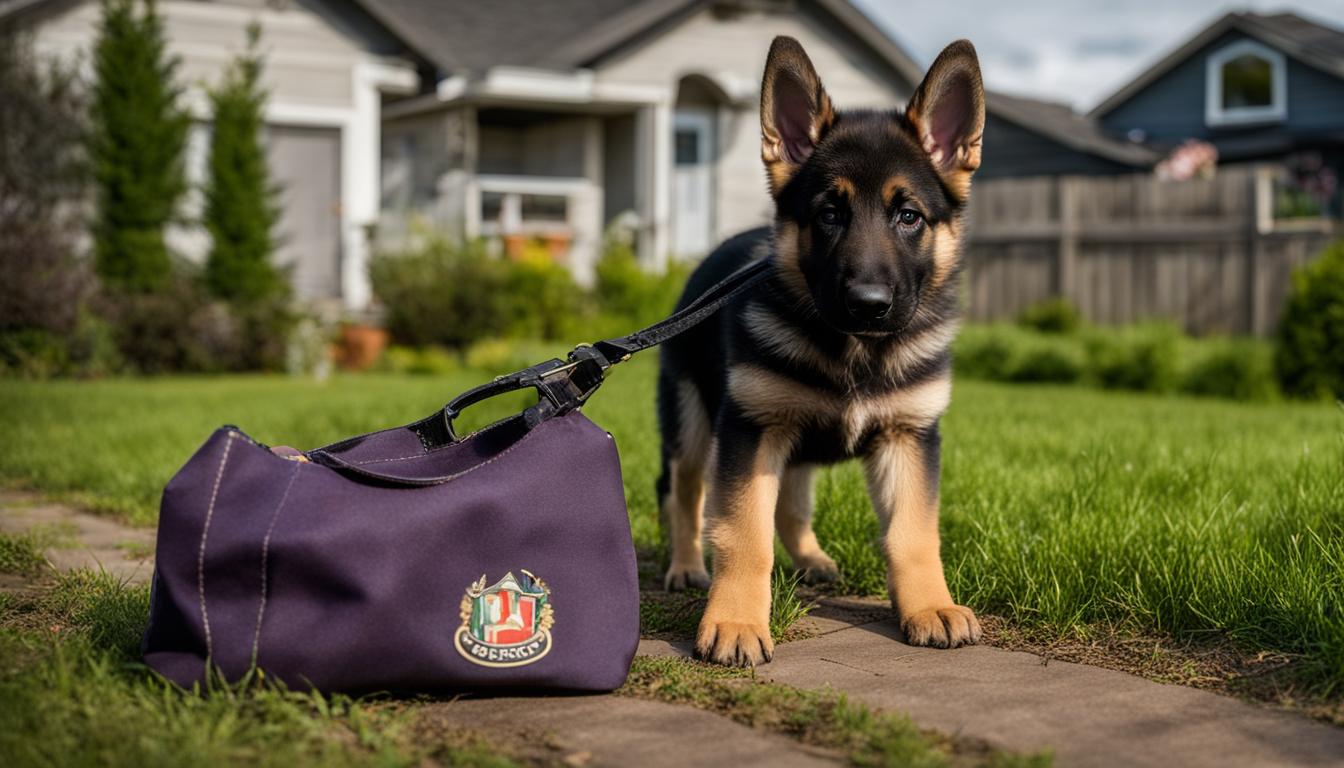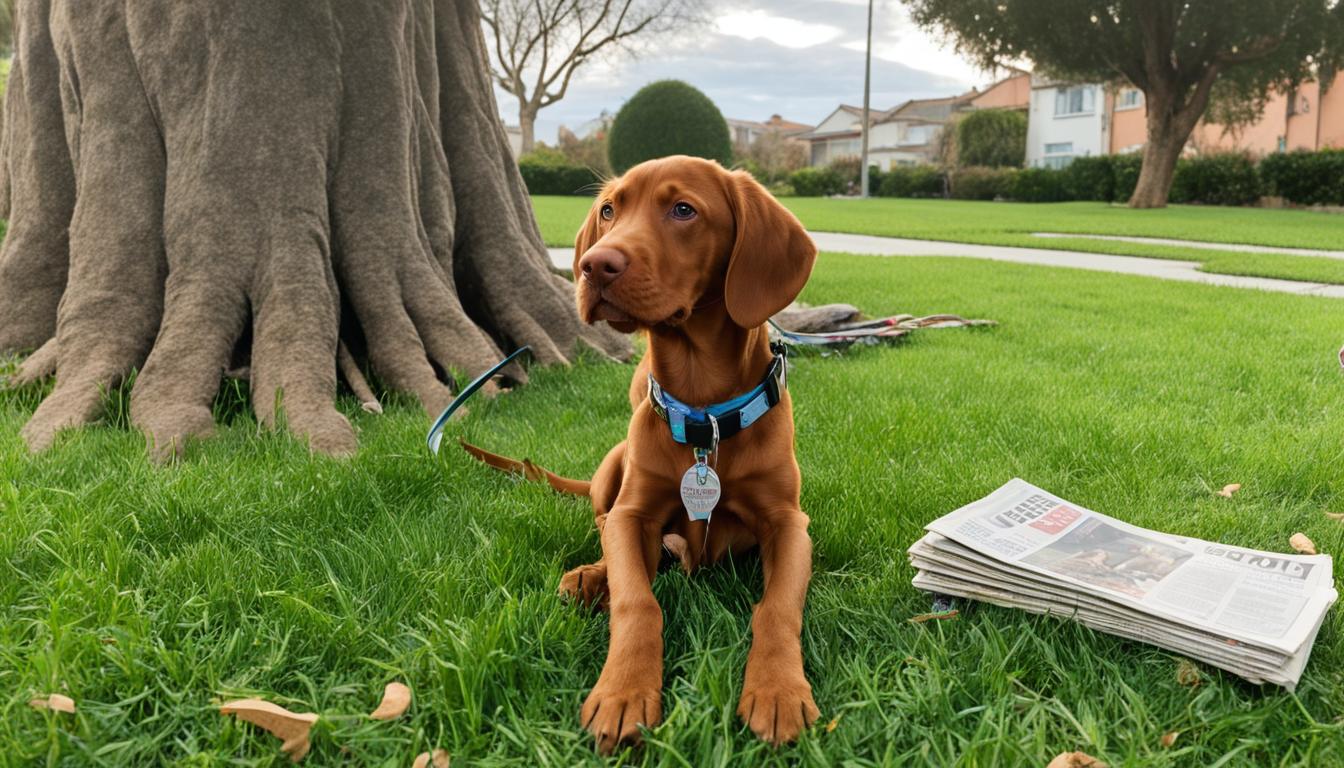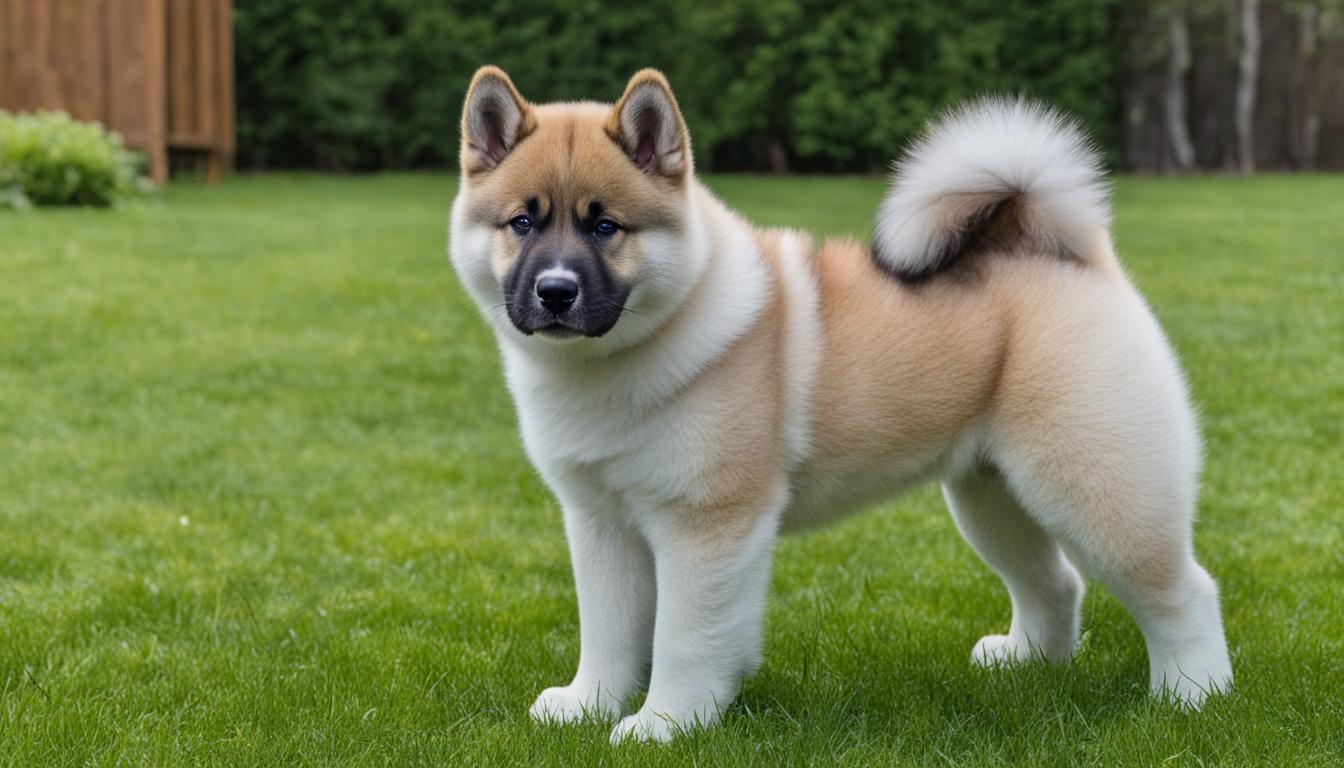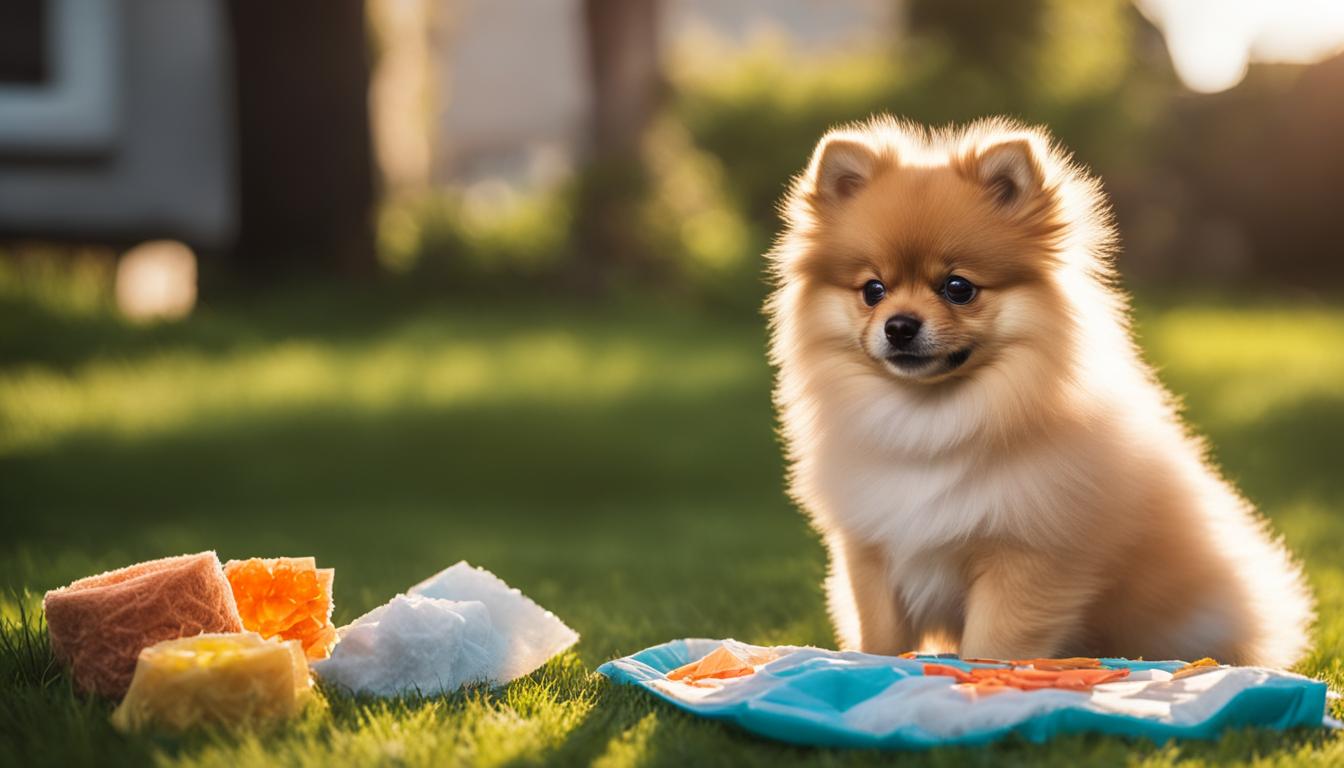Embarking on the journey of housebreaking German Shepherds can be an exciting time for both you and your furry friend. Understanding the ins and outs of German Shepherd house training not only sets the stage for a hygienic home environment but also fosters a deeper bond with your pet. As you’re about to discover, these intelligent canines are more than capable of picking up on the puppy potty training tips we’ll explore together.
Mastering the art of potty training is all about strategy, consistency, and a touch of patience. With a breed that’s eager to please and quick to learn, you’re already at an advantage. We’ll guide you through the essential steps to ensure you’re well-equipped to navigate this crucial aspect of puppyhood, leading to a well-trained and confident companion by your side.
Understanding The Advantages of Early Potty Training for Your German Shepherd
Embarking on the journey of potty training your German Shepherd puppy comes with a significant array of benefits. It’s more than just avoiding messes; it’s about setting the stage for a harmonious life with your intelligent, active canine companion. Let’s delve into why you should train puppies early and the positive outcomes it fosters.
Firstly, establishing a potty routine early on serves as a cornerstone for pristine home hygiene. More than maintaining a clean environment, it equips your puppy with critical bladder and bowel control, which is essential for their wellbeing. A structured schedule not only prevents accidents in the house but also prevents potential negative behaviors from cropping up due to boredom or excess energy.
It’s important to recognize that affirmative potty training is much more than a simple command-response equation. It is a positive behavior reinforcement framework that enhances the communication loop between pet and owner. This ongoing dialogue encourages good conduct and compliance, entrusting your pet with the responsibilities of their actions.
Your German Shepherd’s in-built desire for consistency will be satisfied with a predictable routine, a routine that ultimately provides an anchor for further training disciplines and brings with it myriad benefits for both pet and owner. Strategic potty training mitigates stress and anxiety, fostering a calm and focused demeanor, crucial for future learning and adaptation.
The impact of potty training touches several facets of domestic pet life, but for a clearer picture, let’s consider the specific advantages of potty training your German Shepherd puppy:
- Hygienic Home: By minimizing accidents, your living space remains sanitary and inviting.
- Healthy Habits: Consistent practice establishes strong routines, benefiting your puppy’s physical and mental health.
- Reduced Stress: A predictable process alleviates anxiety for both the puppy and you.
- Better Bonding: A clear understanding between you and your pet reinforces trust, a key component for a strong relationship.
- Preventative Steps: Early training can prevent more stubborn behaviors from developing as your puppy matures.
Remember, the benefits of potty training are vast and extend well beyond the immediate. It lays a robust foundation not only for a disciplined and respectful adult German Shepherd but for a fuller, more harmonious partnership between you and your furry companion.
How to Potty Train a German Shepherd Puppy (Step-by-Step)
Embarking on the journey of puppy potty training with your German Shepherd can feel daunting, but with a clear, step-by-step routine, you’ll set up a foundation for effective housebreaking. Let’s explore the steps to create an puppy potty training routine that will help foster good habits and a happy home.
Step 1: Master The Basics of Potty Training a Puppy
Understanding the basics is essential. Puppies have small bladders, so it’s crucial to take them out often. Rewarding them immediately after they go in the right spot reinforces the behavior you want.
Step 2: Choose The Designated Puppy Potty Area
Consistency is key in training. Select a puppy potty area in your yard or outdoor space and always take your puppy to that spot. This will help your puppy understand where they are supposed to go.
Step 3: Set a Potty Break Schedule
Set a strict schedule for potty breaks, especially after meals, playtime, and naps. Over time, your puppy will learn to hold it between these breaks.
Step 4: Look for Visual Cues Such as Sniffing, Circling or Whining
Being attentive to potty break cues can prevent accidents before they happen. When you notice these signs, it’s time to head straight to the potty area.
Step 5: Take Your Puppy Out to The Designated Potty Area Frequently
Frequent trips to the potty area can aid in quicker learning. The more chances your puppy has to be rewarded for going in the right place, the faster they’ll learn.
Step 6: Use a Leash and Collar or Harness to Take The Puppy Outside
Even if you have a fenced yard, using a leash during potty training helps keep your puppy focused on the task at hand and prevents them from getting distracted.
Step 7: Avoid Accidents at All Costs
By closely monitoring your pup and quickly taking them out when you see the need, you can minimize accidents and set your puppy up for success.
Step 8: Clean up Any Accidents Thoroughly With an Enzymatic Cleaner
If your puppy does have an accident, clean it up immediately with an enzymatic cleaner to remove the scent and discourage them from going in the same place again.
Step 9: Choose a Specific Word to Use Consistently When Taking Your German Shepherd Puppy Outside to Potty
Using a specific command like “potty” each time you take your puppy out helps them associate that word with the action of eliminating.
Step 10: Stick With a Routine
Maintaining a regular puppy potty training routine ensures your puppy knows what to expect and when to expect it, which is vital for successful training.
Step 11: Confine The Puppy When You Are Unable to Supervise Them
Using a crate or gated area when you’re unable to watch your puppy can prevent accidents and help your puppy learn to hold their bladder.
Step 12: Stay Consistent and Patient for Successful Potty Training
Consistency in your training approach and patience throughout the process will help your puppy learn and grow in the best way possible.
Step 13: Focus on Praising Your Puppy for Getting It Right
Positive reinforcement when your puppy successfully goes in the designated area strengthens good behaviors and encourages your puppy to repeat them.
Step 14: Gradually Increase The Time Between Potty Breaks
As your puppy’s bladder control develops, slowly extend the time between breaks to help them learn to hold it for longer stretches.
Essential Puppy Potty Training Equipment for Your German Shepherd
Before you embark on the journey of potty training your German Shepherd puppy, gearing up with the right puppy potty training equipment is a must. You’ll need to set yourself up for success with items designed to create a positive experience for both you and your pup.
These essentials include crate training basics and items that cater to the nature of the task at hand. Here’s a rundown of the must-have potty training supplies to help your furry friend learn where and when to do their business.
To begin, a correctly sized crate is the cornerstone of effective crate training essentials. It will be your puppy’s retreat and a key tool in preventing accidents. Along with the crate, swiftly guiding your puppy to the desired potty area will call for a durable leash—safety and control are pivotal.
Don’t forget an abundant stash of treats for positive reinforcement every time your pup gets it right, encouraging them to repeat the desired behavior. And for those inevitable slip-ups, an enzymatic cleaner does wonders in eradicating odors that might beckon your puppy back to the same spot to relieve themselves again. Finally, equip yourself with a healthy dose of patience—it’s an invaluable part of your potty training toolkit.
Remember, with the right preparation and mindset, potty training your German Shepherd puppy can be a bonding experience that sets the stage for a lifetime of good habits.
| Potty Training Item | Purpose | Tips for Use |
|---|---|---|
| Crate | To provide a safe, den-like environment for your puppy | Ensure the size is just right—not too small, not too large |
| Leash | For safe and controlled trips to the potty area | Choose a sturdy design to handle the growth and energy of a German Shepherd |
| Treats | For rewarding your puppy’s successful potty trips | Opt for healthy, bite-sized treats that your puppy finds irresistible |
| Enzymatic Cleaner | To eliminate odors from accidents effectively | Apply as soon as possible after an accident for best results |
As you gather these supplies, be confident in knowing that with the right approach, your German Shepherd is well on their way to becoming a potty-trained, well-mannered companion.
Indoor Potty Training Vs. Outdoor Potty Training
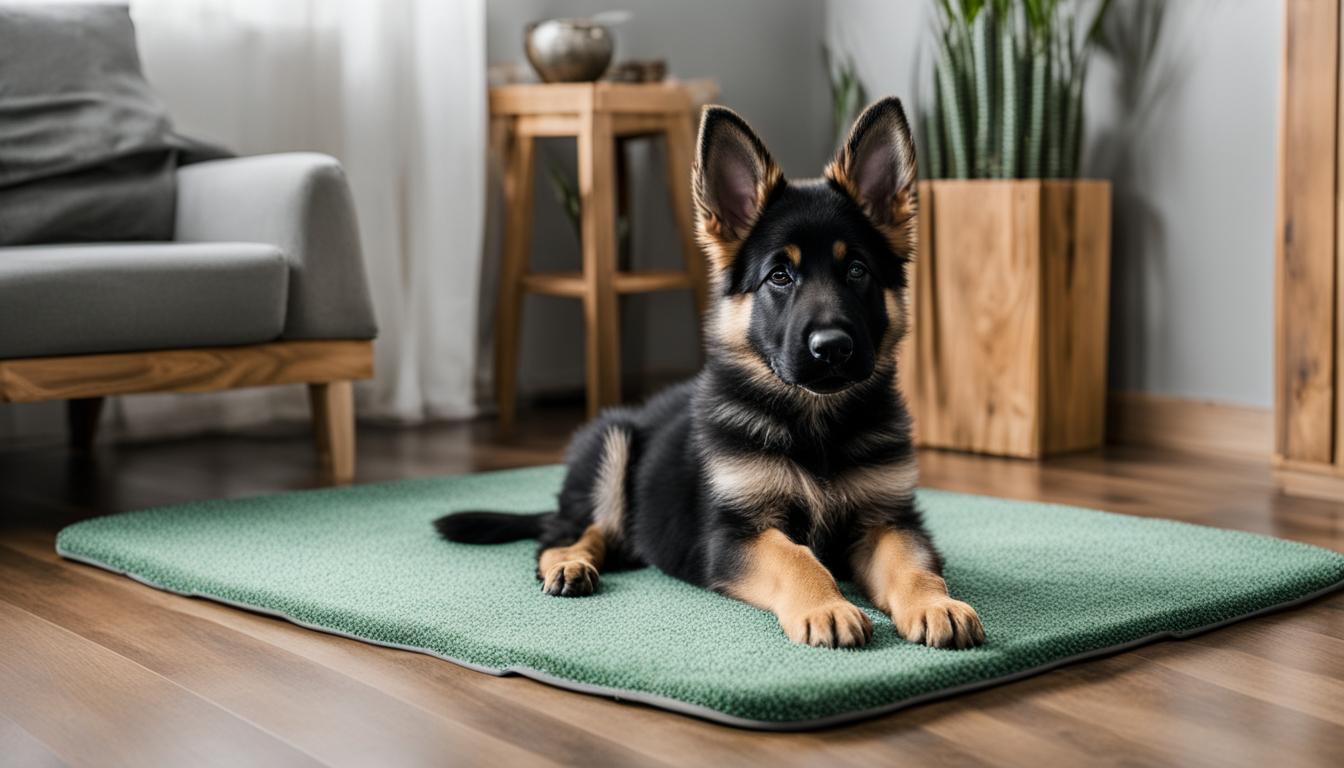
When you’re faced with the decision of indoor potty solutions versus outdoor housetraining for your German Shepherd puppy, consider the ideal potty training environment that suits your lifestyle and your puppy’s needs. Apartment dwellers might lean towards indoor options, while those with yard access might prefer outdoor methods. Let’s delve into the pros and cons.
Indoor Potty Training: Convenient for those without immediate outdoor access and beneficial during inclement weather conditions, indoor potty solutions come with challenges. Transitioning later to outdoor housetraining might take extra patience and effort.
Outdoor Potty Training: Taking your pup outside leverages their natural inclination to avoid soiling their living space. It promotes a healthy routine but calls for commitment to take your puppy out regularly, regardless of the weather.
| Training Type | Convenience | Transition to Outdoor | Weather Consideration | Setting Clear Boundaries |
|---|---|---|---|---|
| Indoor | High | More Challenging | Less Impactful | May be Confusing |
| Outdoor | Depends on Access | Easier | Need Readiness | Clear & Consistent |
In identifying the ideal potty training environment, assess your current living arrangement, your availability to consistently take your puppy outside, and how you envision your puppy’s habits developing in the long term. No matter your choice, consistency is the key to success in housetraining.
Crate Training Vs. Pad Training a German Shepherd Puppy
When it comes to housebreaking your German Shepherd puppy, the debate between crate training and pad training is ongoing. Crate training benefits include encouraging a puppy’s natural denning instincts, creating an environment for them to feel safe while learning to hold their bladder until it’s the appropriate time and place to relieve themselves. This method usually leads to a smoother and quicker housebreaking experience. On the other hand, pad training drawbacks often involve the introduction of an interim step that may cause confusion, as the puppy has to learn first to use pads indoors and then transition to going outside. Housebreaking techniques that are consistent and use positive reinforcement remain crucial, regardless of the chosen method.
Here’s a comparative look at the two training methods to help you decide which path may suit your lifestyle and your puppy’s needs:
| Crate Training | Pad Training |
|---|---|
|
|
As you can see, there are distinct advantages and setbacks for each method. It’s essential for you, as the puppy parent, to consider your daily routine, the amount of time you can dedicate to your puppy’s training, and the long-term goals you have for their potty habits.
Whether you opt for crate training to take advantage of its benefits or choose pad training despite its drawbacks, remember that your consistent effort and patient guidance are what will ultimately lead to a well-trained, housebroken German Shepherd companion.
Frequently Asked Questions About Potty Training a German Shepherd Puppy

If you’re looking for quick potty training tips or you’re curious about the potty training timeline, you’ve come to the right place. Potty training your German Shepherd puppy is a vital part of their early development, and this section covers some frequently asked questions to help you navigate the process and troubleshoot puppy potty accidents efficiently.
Keep reading for tried-and-true advice that addresses common concerns.
How Long Does It Typically Take to Potty Train a German Shepherd Puppy?
Every German Shepherd’s learning curve is unique, but generally, it can take several weeks to a few months to fully housebreak your puppy. This potty training timeline relies heavily on consistency and patience in your approach. Establish a routine early and stick with it, and remember that positive reinforcement is your ally in quick and effective training.
What to Do if Your German Shepherd Puppy Won’t Pee Outside The House?
It’s not uncommon for puppies to feel hesitant about peeing outside due to unfamiliar environments or distractions. Ensure you create a safe, quiet, and welcoming space for your puppy to do their business. If the problem persists, consider troubleshooting any potential causes of stress or intimidation that might deter your puppy from peeing outside.
Should You Use Treats When House Training a German Shepherd Puppy?
Absolutely! Treats are a fantastic form of positive reinforcement. Rewarding your puppy with a small, tasty treat immediately after they go potty in the correct place helps them make positive associations with the action and encourages repeat behavior.
What Are The Benefits of Puppy Potty Training?
Proper potty training leads to a cleaner home and a happier pet-parent relationship. Not only does it prevent unwanted messes, but it also enforces a structure within which your puppy can learn other important behaviors and commands.
Is It Better to Use Puppy Pads or Go Straight to Outdoor Potty Training for a German Shepherd Puppy?
The answer to this may depend on your living situation and personal preference. Puppy pads can offer indoor convenience but may prolong the transition to outdoor potty habits. Outdoor training, however, takes advantage of a puppy’s natural inclination for eliminating outside and usually offers a clearer demarcation of where is appropriate to go.
What Should I Do if My German Shepherd Puppy Does Not Seem to Be Learning to Potty Train Correctly?
If your puppy doesn’t appear to be catching on, reassess your routine. Are you being consistent? Are the potty breaks frequent enough? Sometimes, minor adjustments in schedule or technique can make a big difference. Patience is key, and it’s beneficial to ensure there isn’t too long a lapse between potty trips, especially in younger puppies.
What Should I Do if My German Shepherd Puppy Starts Accidents in The House?
When accidents happen, it’s vital not to react negatively. Instead, clean up properly with an enzymatic cleaner to remove the scent and avoid future accidents in the same spot. Then, review your potty break schedule to prevent future incidents and maintain a consistent schedule.
What Are Some Common Mistakes That Are Made When Potty Training a German Shepherd Puppy?
Common errors include lack of schedule adherence, punishing the puppy for accidents, and insufficient supervision. Remember that consistency and positive reinforcement produce the best results.
What Are Some Potential Consequences of Not Potty Training a German Shepherd Puppy?
Without proper potty training, your puppy may develop persistent bad habits that can be difficult to break. This not only leads to an unclean living environment but may also contribute to a strained pet-owner relationship.
What Can I Do to Help My German Shepherd Puppy Feel More Comfortable Going Potty Outside?
To make your pup more comfortable with the process, accompany them outside and employ calm, reassuring tones. Offer praise and treats when they successfully go to the bathroom in the right place. This reinforces the behavior and helps your puppy to understand what’s expected.
How Old Does My German Shepherd Need to Be Before I Can Start Potty Training?
You can begin potty training as soon as your German Shepherd puppy comes home, usually around 8 weeks old. Start establishing routines early, which can help your puppy adapt more quickly and ease the potty training process.
How Often Should I Take My German Shepherd Puppy Outside to Go Potty During The Day?
For young puppies, it’s recommended to take them out every two hours, as they have smaller bladders and less control. As they grow and you become more attuned to their individual needs, you’ll be able to adjust this schedule accordingly.
What Should I Do if My German Shepherd Puppy Has an Accident Inside During Potty Training?
When an accident occurs indoors, ensure to clean it up immediately with an enzymatic cleaner to fully remove odors. This reduces the likelihood of your puppy associating that spot as a future potty area. Reassess the potty break frequency and remain patient and consistent in your approach.
Last Thoughts on German Shepherd Puppy Potty Training
Embarking on the journey of housebreaking your German Shepherd puppy requires more than just a series of steps to follow; it’s about nurturing their development into a well-adjusted family member. With successful German Shepherd training, you foster a bond built on understanding and respect.
It’s important to arm yourself with housebreaking final tips to ensure a smooth transition during this teaching phase. Remember, the key ingredients to success are patience, positivity, and persistence, which will help you every step of the way.
During this training period, it’s crucial to give your German Shepherd puppy the consistent guidance they crave. This is not just about teaching them where to relieve themselves, but also about nurturing puppy development.
Your warm and positive approach will help avoid any negative experiences that can impede progress during these sensitive early stages. By demonstrating unwavering patience and reinforcing good behaviors, you are not just training your puppy—you are setting the stage for a lifelong trusting relationship.
As you integrate these final pieces of advice into your routine, you’ll find that your dedication pays off in the form of a well-behaved canine companion. Keep in mind that every puppy is unique and may learn at their own pace. Don’t be discouraged by setbacks; instead, view them as opportunities to strengthen the bond with your puppy.
Stay the course, and you’ll be amazed at how responsive and cooperative your German Shepherd can be. It’s a rewarding journey that goes far beyond potty training, shaping the foundation for a lifetime of companionship and mutual respect.

